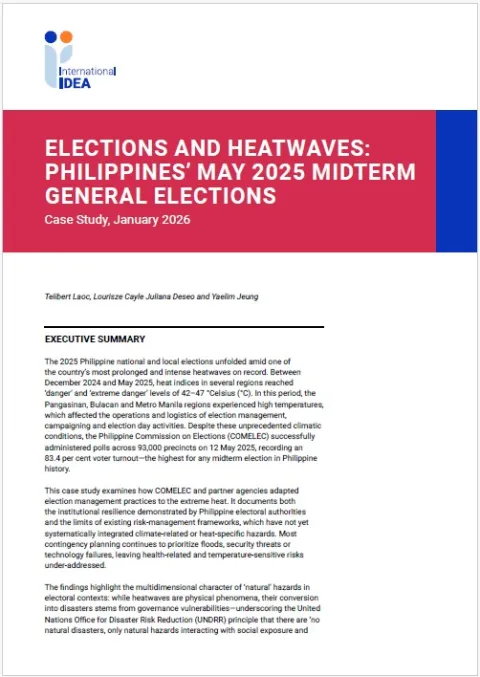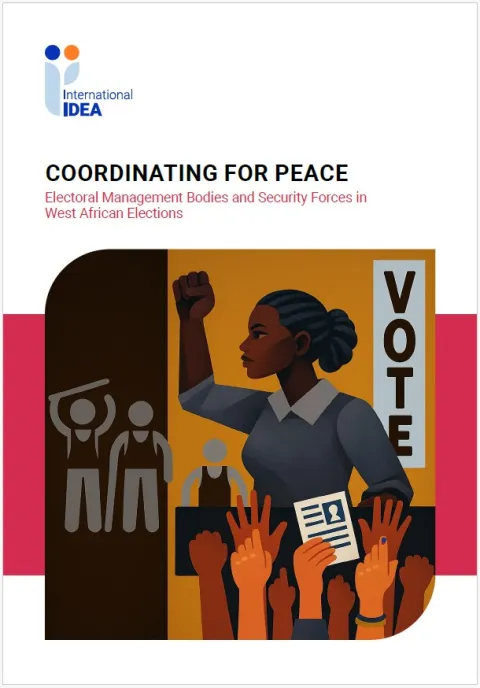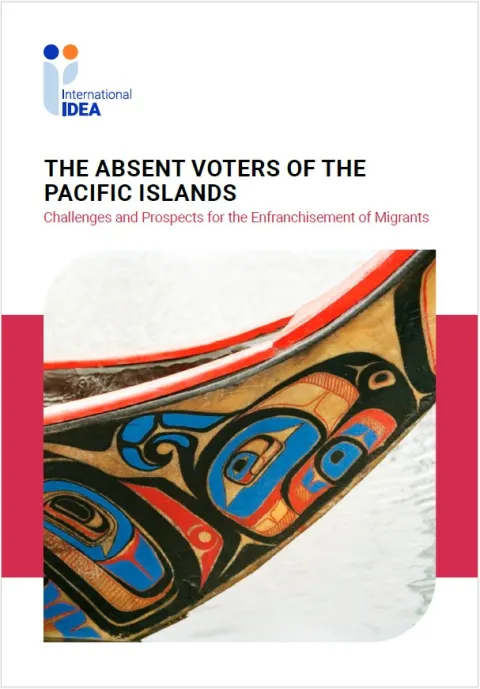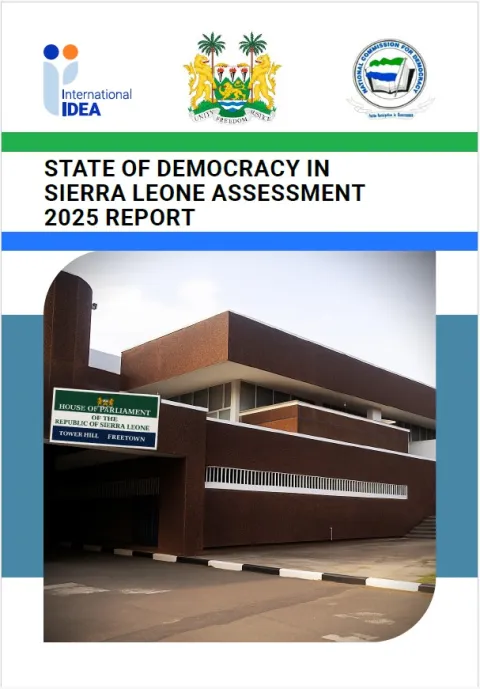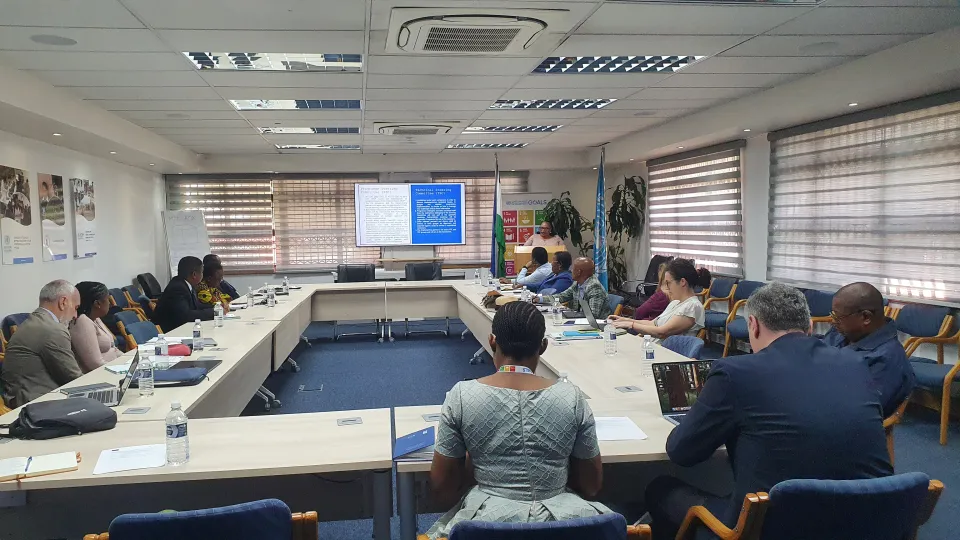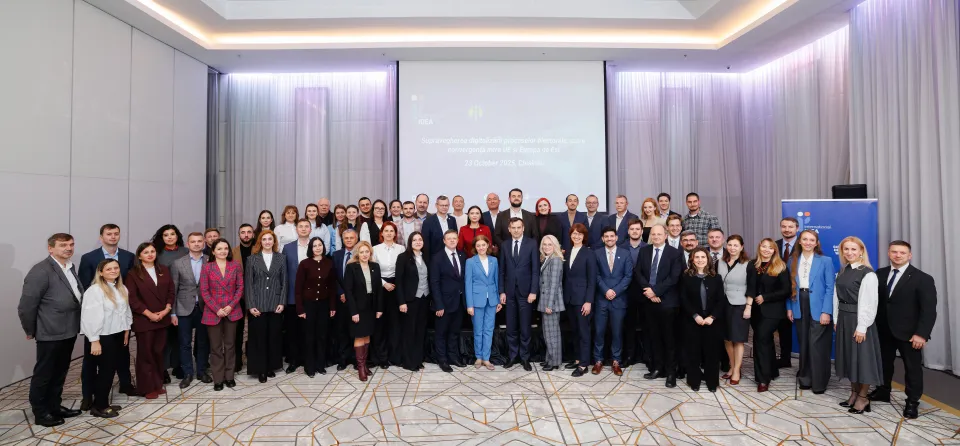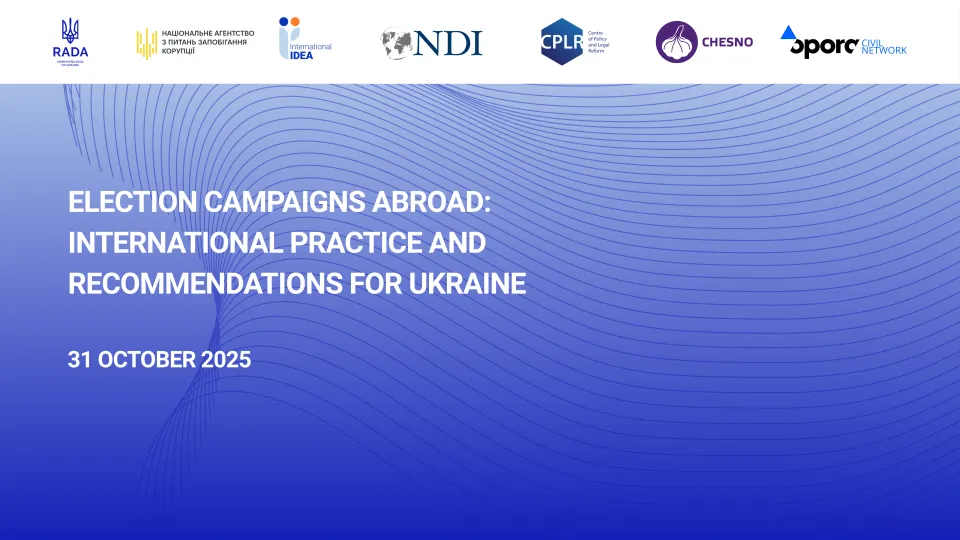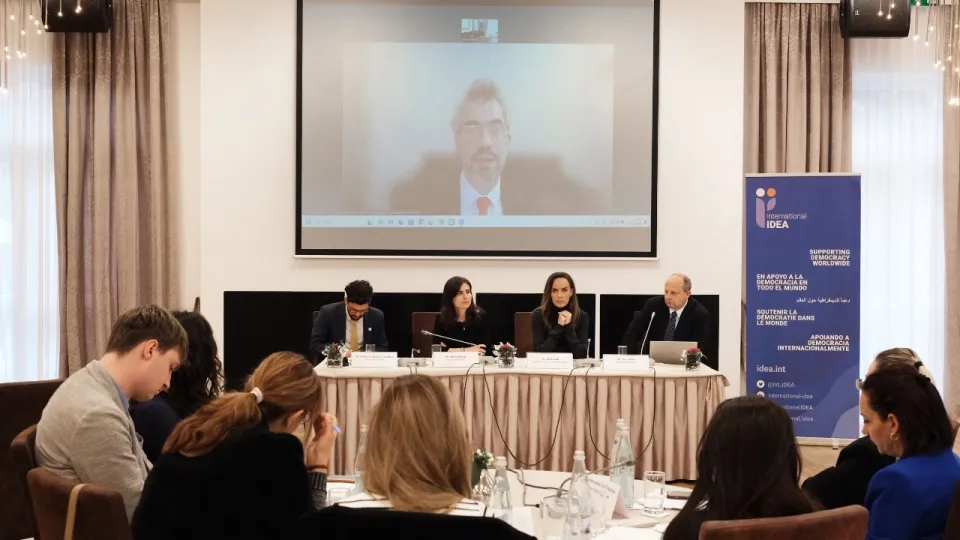Effective Party Assistance: Stronger Parties for Better Democracy
Party assistance has been part of international cooperation since the 1950s. Since then it has expanded steadily, both in terms of funding and the number of actors involved. Nonetheless, party assistance lacks coherent standards and principles for determining what projects should achieve, how appropriate activities can be identified, and how their impact can be measured.
This Policy Paper calls for the party assistance community to develop joint principles for project needs assessment, monitoring of implementation and impact evaluation. Such principles would make activities more effective and efficient. Indirect measurement tools are necessary to overcome the difficulties of impact measurement in democracy assistance.
Party assistance needs to focus on the functions that political parties fulfil in a democratic system. The basic functions for political parties are to develop consistent policies and government programmes; to pick up demands from society and bundle them; to recruit, select and train people for positions in the executive and legislature; and to oversee and control government.
Details
Contents
Key Recommendations
Executive Summary
Introduction
Analysis
Recommendations
Conclusions
References
Abbreviations
Give us feedback
Do you have a question or feedback about this publication? Leave us your feedback, and we’ll get back to you
Send feedbackEffective Party Assistance: Stronger Parties for Better Democracy
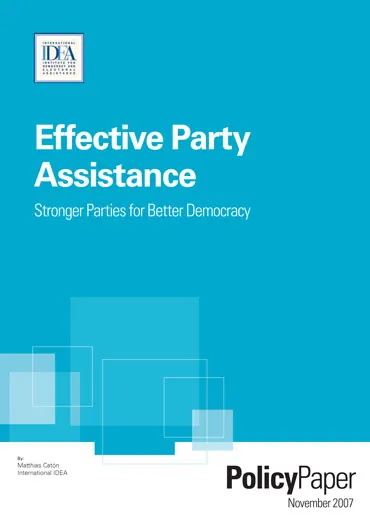
| Total views | 7962 |
|---|---|
| Downloads | 94 |
| Rating |
Give us feedback
Do you have a question or feedback about this publication? Leave us your feedback, and we’ll get back to you
Send feedback